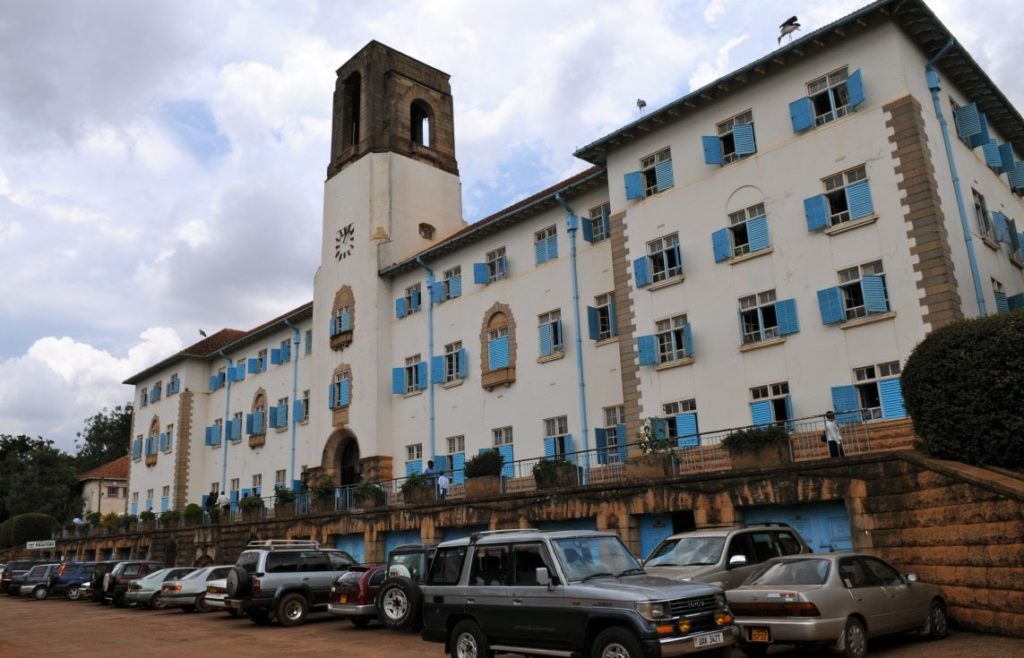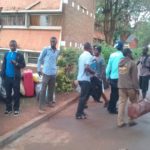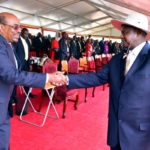Makerere University has bowed to students demands and shelved the proposal to increase tuition for some undergraduate programmes. This followed a two-day sustained strike that had the police intervene with teargas.
The university took the decision Wednesday during a meeting that had in attendance the Vice Chancellor Professor Barnabas Nawangwe, student leaders, Kampala East Regional Police Commander Wesley Nganizi and other staff.
Under the proposed tuition fees structure for the academic year 2018/2019 that starts in August, the University Council had hiked tuition fees for postgraduate and some undergraduate programmes.
The university council, before the students’ strike, had proposed that Post-graduate diploma and master’s degree students pay a minimum of sh5m per year while doctoral students were expected to pay sh7m for any given programme.
It said, over the past years, post-graduate students at the university have been paying fees ranging between sh1.7m (for a postgraduate diploma in education) to sh5.7m per year.
The other issue of contention is that the students are against the university’s offer Shs450 per day as food allowance and want the university to continue serving them food at their halls of residence.
The suggestion to scrap off evening programmes did not also go well with students and the general public who accused the university’s administrators of trying to deny Ugandans chance to study, especially the working class.
“This is to inform you that following consultations with the chairperson of Makerere University Council, it has been agreed that the new fees for selected programmes in the College of Health Sciences, College of Veterinary Medicine, Animal Resources and Bio Security and College of Humanities and Social Sciences be suspended until consultations are made with the students guild for their input,” reads part of the letter signed by Prof. Nawangwe.
Addressing fellow students at the university, Papa Salim Were, the guild president, urged them to suspend the strike, saying that the administrators had addressed most of the issues made them to opt for what he called a ‘peaceful strike’.
“We have come up with a committee which is going to discuss with the administrators and revise all the policies which were suggested,” Were said. “All the students who were arrested were released, but we are not happy with the police. They mishandled us, yet we were peaceful,” he said.
This the first major strike since Prof. Nawangwe assumed office as VC.
While giving his inauguration speech on September 14, 2017, Prof. Nawangwe promised so many reforms. Under Academic reforms, Prof. Nawangwe said, they would restructure all courses and programmes to make them more practical and relevant to the needs of society, operationalize e-learning and distance education and aggressively move towards increasing the proportion of graduate students.
“We will gradually manage undergraduate student numbers and aggressively increase the graduate student numbers to enhance research capacity and output leading to increased innovation,” he said.
Analysts now say the fees increments goes against such reforms especially it would bring down the number of post-graduate students, he had suggested to increase.
In November 2016, President Yoweri Museveni, who is the Visitor of the university appointed the Visitation Committee led by the late Dr. Abel Rwendeire, to visit, study, make a situational analysis on causes of endemic strikes, assess progress on the implementation of previous reports, conduct an appraisal of the integrity of finance management and establish the student and staff numbers.
The Committee would then adopt an integrated approach to address the task including among others; desk reviews of relevant documentation, stakeholder interface, financial and other relevant audits, benchmarking and dialogue with the public.
Having established the issues, the committee presented a report to Museveni, saying it was designed to enable Uganda’s higher education subsector in general and Makerere University in particular to address the developmental challenges of this country, the region and Africa.
However, the effective and efficient implementation of these recommendations, they said would require collective effort from Government, Makerere University and other stakeholders including students.







